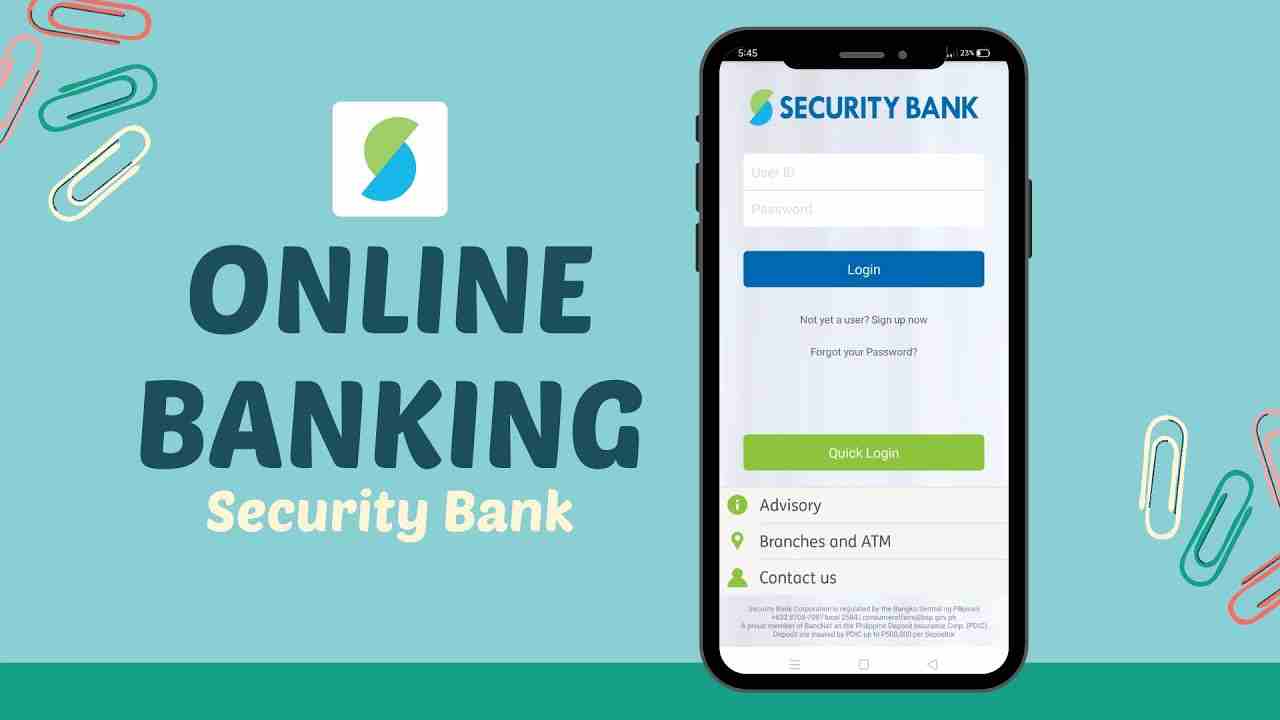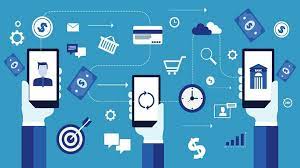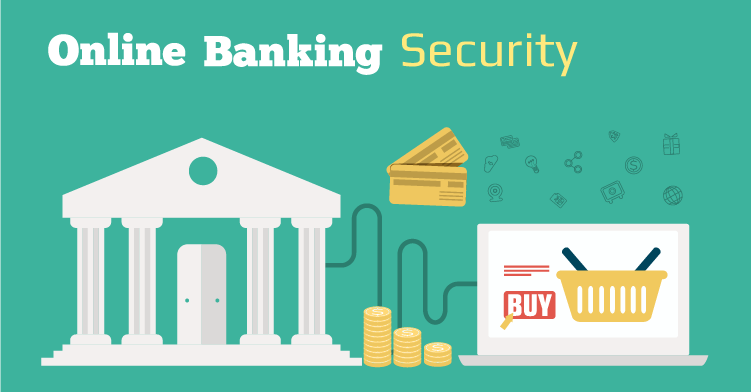Online banking security isn’t just a fancy term; it’s your financial lifeline in the digital age. With hackers lurking in the digital shadows, safeguarding your hard-earned money is more critical than ever. That’s why I’ve nailed down seven tips that are your bank account’s new best friends. Think of them as the superheroes of the cyber world, keen to protect every transaction you make. From spotting the sly scams to embracing cutting-edge tech, these methods are your armor against the bad guys. So, buckle up and get ready to shield your finances like a pro.
Understanding the Risks of Online Banking
Common Online Banking Risks and How to Recognize Them
Picture this: You’re on your laptop, paying bills online. Feels safe, right? Sometimes, it’s not. Online banking risks are out there, and they can bite. Cyber crooks are tricky. They use scams to trick you into giving your bank info. One common trick is phishing. This is when someone sends an email that looks like it’s from your bank but it’s not. They want your login info. To spot phishing, check the email address. If it looks odd, it could be a scam.
Another big worry is malware. This is like a bad flu for your computer. It can steal your info or harm your files. To stay safe, avoid clicking on links from unknown sources.
Lastly, your own password can be a weak spot. If it’s too simple, someone could guess it. Worse, if you use that same password everywhere, you’re in trouble if one site gets hacked. Change them often, and make them strong – mix up letters, numbers, and symbols to be safe.
The Impact of Cybersecurity Threats on Personal Finances
Now, let’s talk dollars and sense. Cybersecurity threats can mess up your money big time. If hackers get into your account, they can take your money. It’s that scary. They can also mess up your credit by taking loans or credit cards in your name. This can hurt for years.
Cybercrime costs folks a lot of cash. Worse still? It makes them feel unsafe. Even if the bank gives your money back, that feeling sticks around. Knowing what’s at risk helps you stay on your toes.
Learn the signs of cyber trouble. Look for weird charges on your accounts. If you see something, tell your bank right away. They’ll help you sort it out.
Keeping an eye out for risks in online banking is smart. Knowing what could go wrong helps you take steps to keep your money safe. Always think before you click, and keep your personal info just that – personal. By being aware and alert, you’re building a strong first line of defense for your finances.
Strengthening Your Online Banking Security
The Crucial Role of Multi-Factor Authentication
We all worry about money safety online. Sadly, hackers never rest. But, good news! You can make it tough for them. Multi-factor authentication for banks is like a secret handshake. It keeps your cash safe. So, how does it work? You need more than a password. Maybe a code on your phone or a fingerprint. These extra steps are key to safeguarding financial information.
You log in to your bank, pop in your password, and then boom! You’re not quite in yet. A text with a code comes to your phone. Punch in that code, and now you’re in. No text, no access. Simple, right? This is two-step verification banking at its best. Bad guys can’t get in without that second key.
Two things keep your bank stuff safe: something you know, like a password, and something you have, like a phone. Some banks even ask for something you are, like your thumbprint. Biometric security in banking is big! All this sounds techy, but it’s all about keeping the bad out and your money in.
Benefits of Using Encryption for Online Transactions
Now let’s talk secret codes – I mean, encryption in online transactions. It scrambles your bank info into stuff only your bank can read. Think of it like this: you write a note, but no one can read it unless they have the secret decoder. That’s SSL certificates for banking.
When you buy things online, look up top in your browser. See a little padlock? That means your info gets scrambled. No scramble, no shop – that’s the rule for secure online payment methods. It’s like sending a locked box through the mail. Only the right person has the key to open it.
 Encryption is a superhero for your online banking. It shields you from the bad guys’ prying eyes. It’s all about creating a safe path for your money to move. Without this, you’re throwing your bank details into a wild storm. You wouldn’t do that with cash, right?
Encryption is a superhero for your online banking. It shields you from the bad guys’ prying eyes. It’s all about creating a safe path for your money to move. Without this, you’re throwing your bank details into a wild storm. You wouldn’t do that with cash, right?
So, when you’re moving money or paying bills, make sure it’s encrypted. This means your private stuff stays private. Tell you what, it feels good knowing your money talks in a secret language. It’s a top tool for financial cybersecurity best practices.
Just like being safe on a bike needs both a helmet and following the rules, online banking needs both strong multi-factor authentication and nifty encryption. They’re the dynamic duo fighting off the cyber baddies. So, always look for them when you’re doing your banking thing.
Remember, you’re in control of your online safety. Use multi-factor authentication. Make sure your transactions are encrypted. These steps are easy to follow and make you a tough target for the bad guys. We want to keep our money safe and sound, so let’s use all the tools we’ve got!
Proactive Measures Against Cyber Fraud
Techniques to Prevent Phishing Scams and Identity Theft
Phishing scams are a real pain. They trick you into giving out private info. They might look like a real email from your bank. But don’t fall for it! Here’s what you can do. Always check the email address. Real banks use their own domain, not a free email one. Hover over links. Your mouse shows where the link really goes. See a strange URL? Don’t click it!
Make passwords strong and unique for banking sites. Mix letters, numbers, and symbols. Change them regularly, too. Never share your password. Not even with friends!
For identity theft, it’s all about details. Cyber criminals want your personal info. Keep that stuff private. Be careful with social media. Don’t overshare. It’s a gold mine for thieves. Shred old bank statements. Don’t just toss them in the bin. Old-school stealing still happens!
Use multi-factor authentication for banks. This adds another check before you get into your account. It could be a code sent to your phone or a fingerprint. It’s way harder for hackers this way.
Best Practices for Monitoring and Reporting Suspicious Activities
Keep an eye on your bank records. Check online activity often. See something strange? Report it quick. Time matters here. Banks will help but you need to speak up.
Get alerts on your phone for bank transactions. This way, you know instantly if something’s up. Then you can take action fast.
Use banking apps that come right from your bank. Avoid third-party ones. They may not be safe. Your financial data is too important.
Keep everything up to date. Your phone, your apps, all of it. Updates fix security holes. Cyber crooks love those holes!
Use firewalls for financial data. Think of it like a fence for your network. It keeps bad stuff out. And don’t forget antivirus for online banking. It’s like a guard for your computer, catching nasty viruses.
Be careful with Wi-Fi. Public Wi-Fi can be a hacker’s playground. If you need to bank on the go, use a VPN for bank transactions. This creates a safe tunnel for your data.
Finally, remember your bank’s hotline. Save the number. If you suspect you’ve been hacked or see weird activity, call them. The sooner, the better. They can shut down access and start fixing things.
By keeping these tips in mind, you’re taking strong steps to guard your finances. Stay alert, stay safe, and keep the fraudsters at bay.
Advanced Security Technologies for Online Banking
Embracing Biometric Security and Modern Authentication Methods
We keep our money safe online with top-notch tech. Just like we lock our doors at home, we need serious cyber security measures in banking. Biometrics—like fingerprints or face scans—help a lot here. Imagine your bank knowing it’s you just by looking at you. That’s what happens with biometric security in banking.
Why not just a password? Well, passwords can be guessed or stolen. But a fingerprint? That’s yours alone. Banks use multi-factor authentication for banks. It’s like having a secret handshake with your bank. They check it’s you in more than one way before letting you in.
What’s more than a password? Your bank might ask for a code from your phone or a fingerprint. That’s the two-step verification banking way. It’s simple: prove it’s you in two ways to get in. Way safer, right? If someone steals your password, they still can’t get in. They’d need your phone or your finger too.
And what if someone tries to break in? Banks are on it. They’re always watching for unauthorized transaction monitoring. They’ll see if something’s not right and can stop it fast. You can rest easy knowing your bank’s got your back.
The Importance of Regularly Updating Banking Software and Using Antivirus Protection
Now, about keeping online banking fresh and safe with updates. Banks update online banking software often. Cyber crooks are smart, but banks are smarter. They fix holes before bad guys can sneak through. Always use the latest version to make sure you’re covered.
Antivirus for online banking? It’s a must. Just like we need medicine to keep away sickness, computers need antivirus to fight off banking Trojans and spyware. These nasties can hide and watch what you do, but antivirus spots them and kicks them out.
And then there’s the armor for your internet life, firewalls for financial data. They act as guards, keeping check on what goes in and out of your computer network. Think of a firewall as a bouncer at a club. It only lets in the good stuff and keeps out the troublemakers.
Even paying online is safer when you’ve got SSL certificates for banking. It’s a secret code talk between your browser and the bank’s site. This means your private info won’t fall into the wrong hands. It’s like sending a letter in a locked box instead of a clear envelope.
Stay sharp out there. Use the tools your bank gives you and stay updated. Cybersecurity is a team sport, and you’re a key player. Let’s keep our money safe and sound together.
In this post, we talked about staying safe with online banking. We covered the risks and how to spot them, like cyber threats that can hurt your money. We also went through ways to make your online banking tighter. This includes using more than one check, like a code from your phone, and encoding your online moves.
Next, we looked at how to fight scam tricks and theft of your identity. Keep an eye out and report fishy stuff right away. Lastly, we dived into cutting-edge safety tools. Think about using your fingerprint to log in and keeping your banking app up to date.
To sum it up, online banking is super handy, but you gotta play it smart. Use the latest tech and stay alert to keep your cash safe. Take these steps, and you’ll be set for safer banking on the web.
Q&A :
What measures can I take to heighten my online banking security?
Enhancing online banking security is paramount. To fortify your personal banking information, always create strong, unique passwords and change them regularly. Enable two-factor or multi-factor authentication whenever possible to add an extra layer of protection. Regularly monitor your accounts for any unauthorized transactions and be sure to use a secure Wi-Fi network. Keeping your computer or mobile device’s security software up to date can also guard against potential threats.
Is online banking safe on mobile phones or should I stick to my computer?
Online banking can be secure on both mobile phones and computers, provided you follow best security practices on all devices. On mobile, always download official banking apps and keep them updated to benefit from the latest security measures. Never access your banking information via public Wi-Fi, and consider using a VPN for an added layer of security. Whether on mobile or computer, ensure that you’re using a secure, private, and trusted network for all your banking activities.
How do banks protect customers’ online transactions?
Banks employ a variety of methods to protect customers’ online transactions. These include encryption, which scrambles data during transmission, rendering it unintelligible to eavesdroppers. They also use secure socket layer (SSL) certificates to establish a secure and encrypted link between the bank’s server and your browser. Banks often have automatic logout features, fraud monitoring systems, and will send alerts for any unusual activity. They may also require additional verification for certain transactions to ensure that it’s the genuine customer executing the operation.
What are the risks associated with online banking and how can I avoid them?
Online banking, while convenient, does come with risks such as identity theft, phishing scams, and malware attacks. To avoid these, never share your login credentials and be cautious of unsolicited emails or messages that may be attempting to trick you into providing sensitive information (phishing). Regularly update your computer’s antivirus software and be vigilant in monitoring your accounts. For additional security, avoid banking on public computers or networks, as these may not be secure.
Can using public Wi-Fi compromise my online banking security?
Using public Wi-Fi can indeed put your online banking security at risk. Public Wi-Fi networks are often not secure, making it easier for cybercriminals to intercept your sensitive information. If you must access your bank account while on the go, it’s much safer to use your mobile phone’s cellular data network or a personal, trusted VPN. Always avoid conducting financial transactions or accessing sensitive information while connected to public Wi-Fi.
